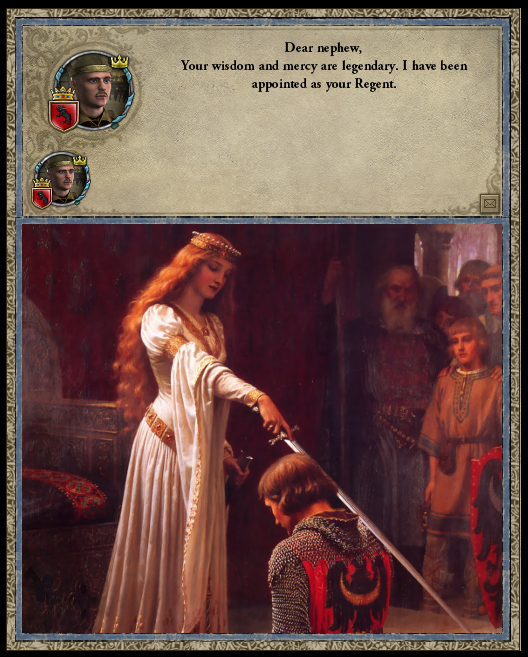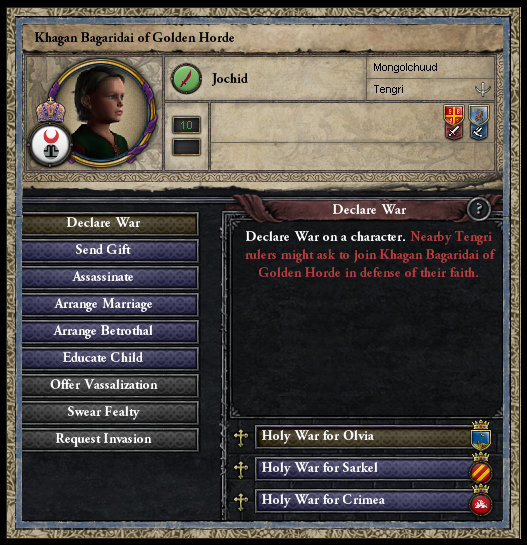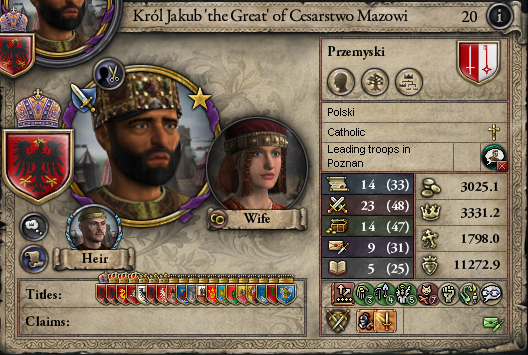Chapter 39 (1215–1223)

Chapter 39 (1215–1223)


The first conflict of this era was a war against the Kingdom of Carinthia, involving claims to the County of Altmark, also known as the Old March. These lands were quickly seized by Przemysław’s forces. The war itself was exceptionally brief, lasting only a few months, as Carinthia was already engaged in a war with Lombardy.

Around the same time, Przemysław also attacked the Duchy of Brabant, ruled by Tore the Fat, a Norwegian nobleman from the Yngling dynasty. This war, like the one with Carinthia, was legitimized by fabricated claims against Tore. The counties of Wittenberg and Magdeburg became the flashpoints of the conflict. Similar to the Carinthian campaign, this war was short-lived, as Brabant lacked sufficient forces to oppose the Mazovian army. After months of systematically capturing castles, towns, and villages—and engaging in acts of destruction, including the slaughter of peasants and the rape of women—Tore was forced to cede both counties to Przemysław.

Between 1217 and 1219, Przemysław launched an invasion against Novgorod Rus with the aim of seizing the territories of the Duchy of Minsk. This war was far longer and more brutal than the conflicts on the western borders of the Mazovian Empire. Mazovian forces quickly besieged strongholds in the Duchy of Minsk, prompting Prince Volodar to march his army against Przemysław’s forces. A decisive battle occurred near Barysaw on June 12, 1219, resulting in a crushing victory for the Mazovian knights.

In October 1219, following Prince Volodar’s humiliating defeat at Barysaw, peace was signed. As a result, all fortresses, villages, and cities in the Duchy of Minsk came under Przemysław’s control. However, this victory did not satisfy Przemysław’s ambitions. After the war’s conclusion, he turned his attention back to the Kingdom of Livonia. The Duchy of Samogitia, the last part of Lithuania not under Mazovian rule, became the target of Przemysław’s next campaign.

The invasion of the Livonians began in April 1220 and lasted until June 1222, culminating in a confrontation between the Mazovian and Livonian armies at the Battle of Veivirženai. The battle was a massacre. Przemysław’s forces, numbering 32,000, faced 20,000 Livonians. The engagement lasted less than a few hours, during which the Livonians were swiftly encircled and annihilated. Following this defeat, King Vaidiginas II relinquished Samogitia to Przemysław.

Meanwhile, the Mongol Ilkhanate, led by Hulagu Khan, a grandson of Genghis Khan, began its conquests in Central Asia. Their first target was the Persian Empire, a Zoroastrian state that had repelled the Seljuk Turks nearly 200 years earlier. Whether Persia would survive this new threat remained uncertain. However, these events held little interest for Przemysław, as they occurred at the far edge of the known world.

On August 9, 1223, Przemysław I passed away. His eldest son, Jan, succeeded him. Przemysław I is remembered as the founder of the third dynasty to rule Mazovia. His epithet, “The Bastard,” stemmed from his illegitimate birth as the son of Zygmunt IV, the penultimate ruler of the Zygmuntowicz dynasty. He is also remembered for overseeing one of the greatest territorial expansions in Mazovian history.
Przemysław’s death came at an unfortunate time, as it occurred during the outbreak of a second war with the Duchy of Brabant. Three months before his death, Przemysław’s envoys had declared his claims on lands currently held by Duke Tore. This conflict was to be continued by Jan, who made it a matter of honor to secure victory.

Map of the Mazovian Empire in 1223
Królestwo Bawarii - Kingdom of Bavaria
Królestwo Krymskie - Crimean Kingdom
Ruś Kijowska - Kievan Rus
Ruś Nowogrodzka - Novgorodian Rus
Królestwo Liwońskie - Livonian Kingdom
- 1
- 1







































